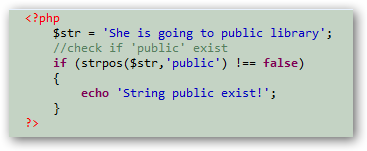

When you want to extract Unicode characters, you should directlyĭefine characters which represent word boundaries. \b can’t be simply used with Unicode such as

How about “café”? How can we extract the word “café” in regex?Īctually, \bcafé\b wouldn’t work. Regex would match apple in an apple pie, but wouldn’t match apple in

\b represents the beginning or end of a word (Word Boundary). The explanation for this and the solution is taken from here: One more thing to take in mind, is that \b will not work in different languages other than english. Put quotes around true and false above to return them as strings instead of as bools/ints. To combine both sets of functionality into a single multi-purpose function (including with selectable case sensitivity), you could use something like this: function FindString($needle,$haystack,$i,$word) Now, this can be quite problematic in some cases as the $search string isn't sanitized in any way, I mean, it might not pass the check in some cases as if $search is a user input they can add some string that might behave like some different regular expression.Īlso, here's a great tool for testing and seeing explanations of various regular expressions Regex101

The i at the end of regular expression changes regular expression to be case-insensitive, if you do not want that, you can leave it out. In order to search any part of the string, not just word by word, I would recommend using a regular expression like $a = 'How are you?' The strpos function returns the index of the character matching c in string or a value of -1 if no matching character was found. The null character terminating string is included in the search. When I did one million compares at once, it took preg_match 1.5 seconds to finish and for strpos it took 0.5 seconds. The strpos function searches string for the first occurrence of c. On the performance side, strpos is about three times faster. These unintended matches can simply be avoided in regular expression by using word boundaries.Ī simple match for are could look something like this: $a = 'How are you?' A strpos check for are will also return true for strings such as: fare, care, stare, etc. #' of the extracted substring is increased by 2, i.e.You could use regular expressions as it's better for word matching compared to strpos, as mentioned by other users. #' pattern String that should be matched against the elements of \code, the range #' string Character vector with string elements. #' slightly mistyped elements in a string vector. #' similar strings in a character vector. #' This function finds the element indices of partial matching or #' Find partial matching and close distance elements in strings


 0 kommentar(er)
0 kommentar(er)
